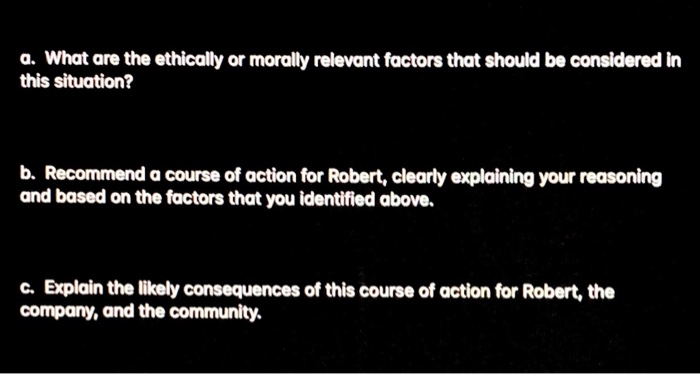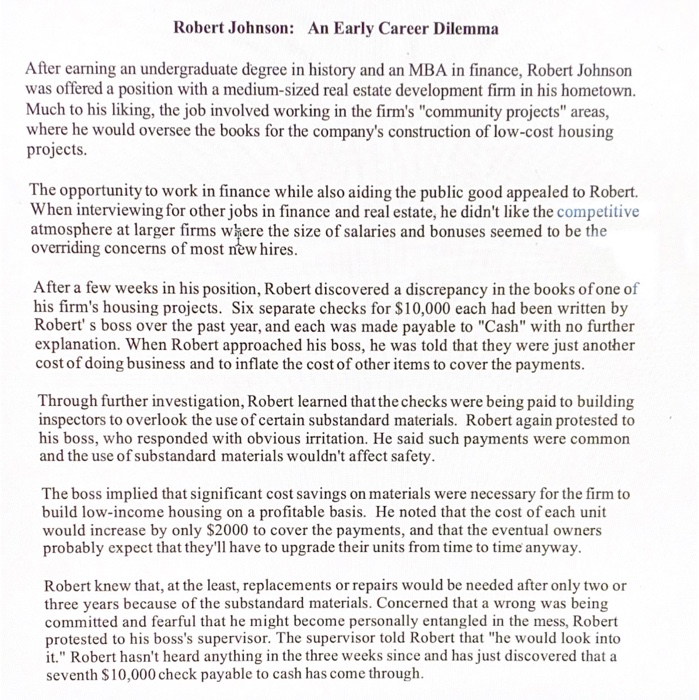a. What are the ethically or morally relevant factors that should be considered in this situation? b. Recommend a course of action for Robert, clearly explaining your reasoning and based on the factors that you identified above. c. Explain the likely consequences of this course of action for Robert, the company, and the community. Robert Johnson: An Early Career Dilemma After earning an undergraduate degree in history and an MBA in finance, Robert Johnson was offered a position with a medium-sized real estate development firm in his hometown. Much to his liking, the job involved working in the firm's "community projects" areas, where he would oversee the books for the company's construction of low-cost housing projects. The opportunity to work in finance while also aiding the public good appealed to Robert. When interviewing for other jobs in finance and real estate, he didn't like the competitive atmosphere at larger firms were the size of salaries and bonuses seemed to be the overriding concerns of most new hires. After a few weeks in his position, Robert discovered a discrepancy in the books of one of his firm's housing projects. Six separate checks for $10,000 each had been written by Robert' s boss over the past year, and each was made payable to "Cash" with no further explanation. When Robert approached his boss, he was told that they were just another cost of doing business and to inflate the cost of other items to cover the payments. Through further investigation, Robert learned that the checks were being paid to building inspectors to overlook the use of certain substandard materials. Robert again protested to his boss, who responded with obvious irritation. He said such payments were common and the use of substandard materials wouldn't affect safety. The boss implied that significant cost savings on materials were necessary for the firm to build low-income housing on a profitable basis. He noted that the cost of each unit would increase by only $2000 to cover the payments, and that the eventual owners probably expect that they'll have to upgrade their units from time to time anyway. Robert knew that, at the least, replacements or repairs would be needed after only two or three years because of the substandard materials. Concerned that a wrong was being committed and fearful that he might become personally entangled in the mess, Robert protested to his boss's supervisor. The supervisor told Robert that "he would look into it." Robert hasn't heard anything in the three weeks since and has just discovered that a seventh $10,000 check payable to cash has come through








